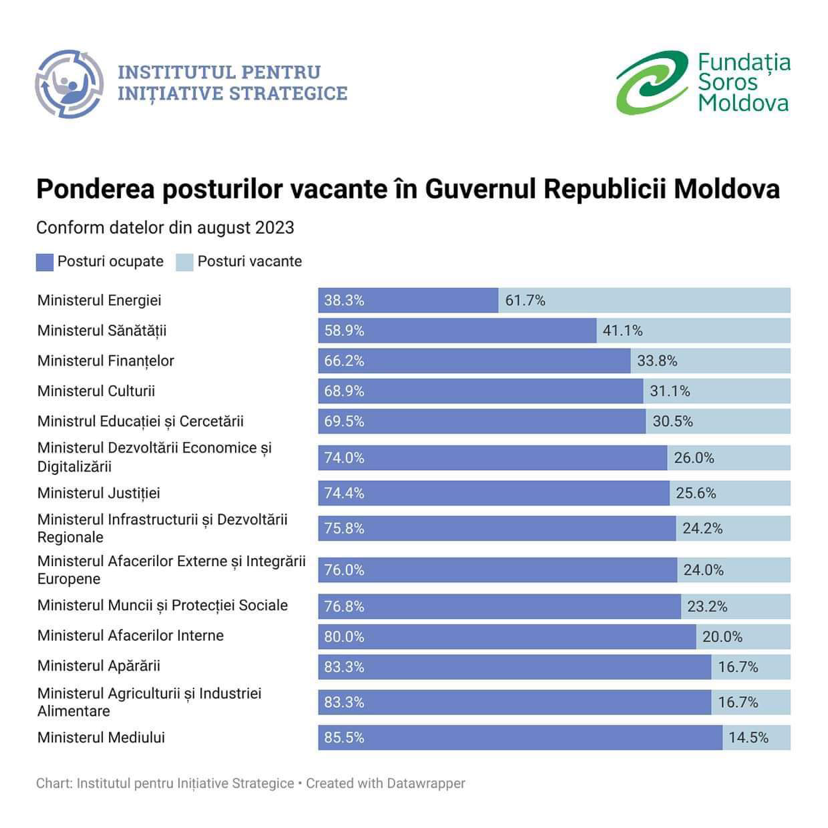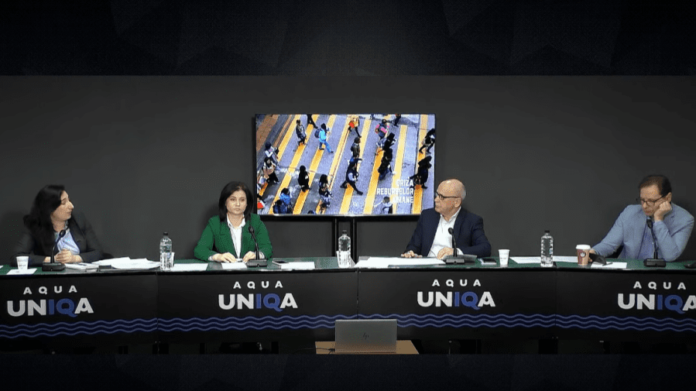Against a backdrop of rapid geopolitical change and growing tensions between Russia and Ukraine, the Republic of Moldova is under increasing pressure to enhance its efforts towards European integration. In the opening of negotiations on accession to the European Union, public administration reform and the revision of the salary system in the budgetary sector are critical issues for the future of the country. This is according to the study “The Crisis of Human Resources and the Salary System in Central and Local Public Authorities in the Republic of Moldova,” conducted by the Institute for Strategic Initiatives (IPIS) with the support of the Soros Foundation Moldova,writes bani.md.
The Republic of Moldova, situated on the eastern border of Europe, faces numerous challenges domestically and internationally. As geopolitical tensions increase, EU membership provides a path towards stability and sustainable development. However, to take advantage of this opportunity, Moldova must address long-standing issues within its public administration.
Currently, public administration at both local and central levels in Moldova is facing challenges related to expertise, competence, and efficiency. Although professionals are present within the administration, the systems are often inconsistent and inefficient. This could potentially harm Moldova’s ability to negotiate accession to the European Union and effectively administer the state.
One immediate priority is to reform the civil service pay system. Currently, the system may be perceived as complex, unfair, and demotivating for employees. A centralised pay reform is necessary to ensure wage competitiveness and fairness while simplifying and increasing transparency in the system.
“There is a significant difference between the average wage levels in Moldova and European Union countries. Policies that stimulate economic growth are needed to overcome this difference. In the Republic of Moldova, there is a significant pay gap of 29% between the public and private sectors. This gap leads to difficulties in retaining qualified staff in public positions and further diminishes the already insufficient pool of civil servants,” said the study authors.
FOR THE MOST IMPORTANT NEWS, FOLLOW US ON TWITTER!
To address the human resources crisis in public administration, it is necessary to take action on wage reform in the budgetary sector. Public administration faces several challenges, including staff turnover, lack of stability, and promotion opportunities based on factors other than merit.
Improving the management system for human resources is essential to ensure a quality public service and to encourage the recruitment and retention of qualified staff. This proposal aims to expand the authority of secretaries-general in ministries to include human resources management, while also restricting the decision-making power of ministers in this field.

Furthermore, the authors of the study suggest that it is essential to cultivate an organisational culture that promotes innovation and excellence. A more participatory and results-oriented approach should replace excessive bureaucracy and authoritarian leadership styles.
” The civil service is not attractive enough, resulting in a low number of candidates for new positions and inefficient recruitment. Attracting, recruiting, and retaining competent staff and professionals in the public service presents a significant challenge. The promotion and career development system is inflexible and largely left to the discretion of senior managers,” also note the authors of the study.
Finally, to secure its European future, the Republic of Moldova needs to strengthen its efforts in administrative and salary reform in the budget sector. These reforms are necessary not only for EU membership but also for the long-term stability and prosperity of the country. By improving working conditions and strengthening public administration, Moldova can create a better future for all its citizens.


